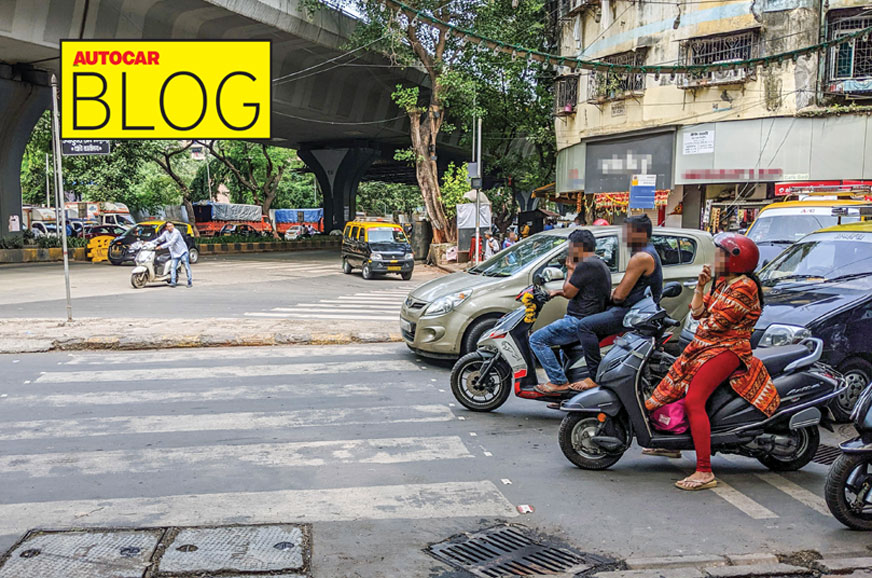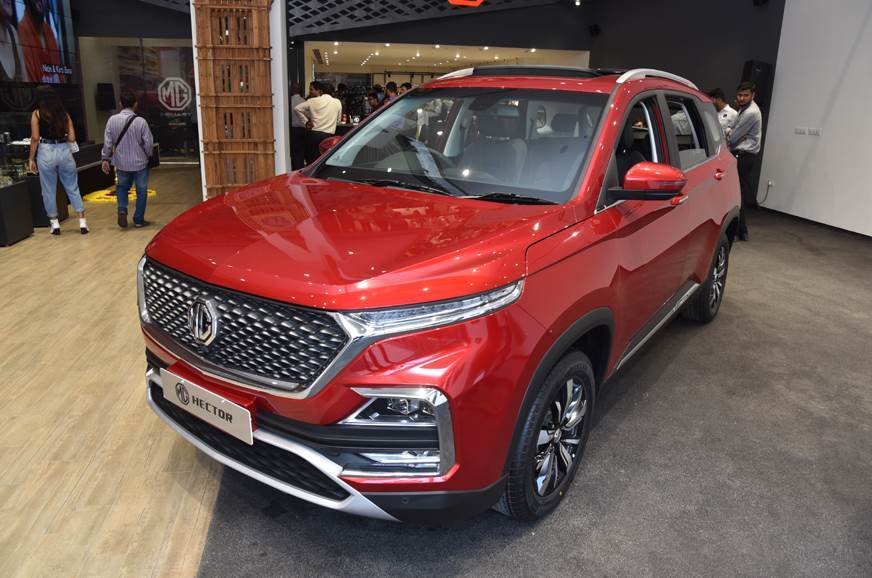
The long overdue, steeper traffic fines were finally implemented with the passing of the Motor Vehicles (Amendment) Bill 2019. And while it brought in a host of developments, none attracted as much news print as the hiked fines. Quite expectedly so too; penalties for the various traffic violations didn’t just increase by a few hundred rupees or a nominal percentage – they went up as high as twenty times in some cases.
The jungle-like law and order situation on our streets would finally be a thing of the past, and the disciplined road user, once an endangered species, will now suddenly see a healthy increase in numbers. Reports soon came in of hefty fines levied and voila, road users began obeying the law, even to the extent of stopping before a zebra crossing.
While it wasn’t as magical as you’d like to believe, the effect was quite apparent. I notice it in Mumbai. For example, the junction right before our office (see photo, helmet still missing though) has everyone stopping before the zebra crossing line, and that too without a police on duty.
At last we seemed to be on our way towards more disciplined and chaos-free roads, but then news reports started coming in of poor folks having to shell out exorbitant amounts in fines, with some two-wheeler riders coughing up more than the value of the bikes themselves. And, of course, in no time many local governments decided to roll back the hiked fines. States like Gujarat, Karnataka, West Bengal and Maharashtra have already gone back to the old fines or have proposed to do so. Naturally, there’s a lot of discussion both for and against the move.
There is, however, a simple solution to all this, and it’s not even untested. Many Scandinavian countries follow a ‘day-fine’ – where above a minimum amount, the offender is penalised based on their personal daily income. And before you think this isn’t possible here, remember we have the Aadhaar. The day-fine system is regarded as fair as it hurts everyone equally. Think about it, dangerous driving now attracts an amount of Rs 5,000. This would hurt someone in the lower income bracket, riding his 10-year-old scooter, but to someone behind the wheel of their latest luxury car, this would seem like a small ‘fee’ to pay for the privilege of racing on the streets. If fines are to be effective, they have to
pinch everyone.
Then there is the fact that many accidents are a direct result of our pathetic road conditions and infrastructure. So shouldn’t there be fines for shoddy roadwork, missing sign board, unmarked speed breakers, etc.? Of course, there should! These would have a direct result in lowering accidents.
We need to quickly implement these measures and more as needed, because if things stay the same, we’ll be back to where we started, with more states rolling back fines to appease the masses. Heck, parties will make this an election promise. Wait, that’s happened already. Yes, we really need these tweaks and soon. After all, they’re really only some fine-tuning.
from Autocar India https://ift.tt/2Drld02
via IFTTT

No comments:
Post a Comment